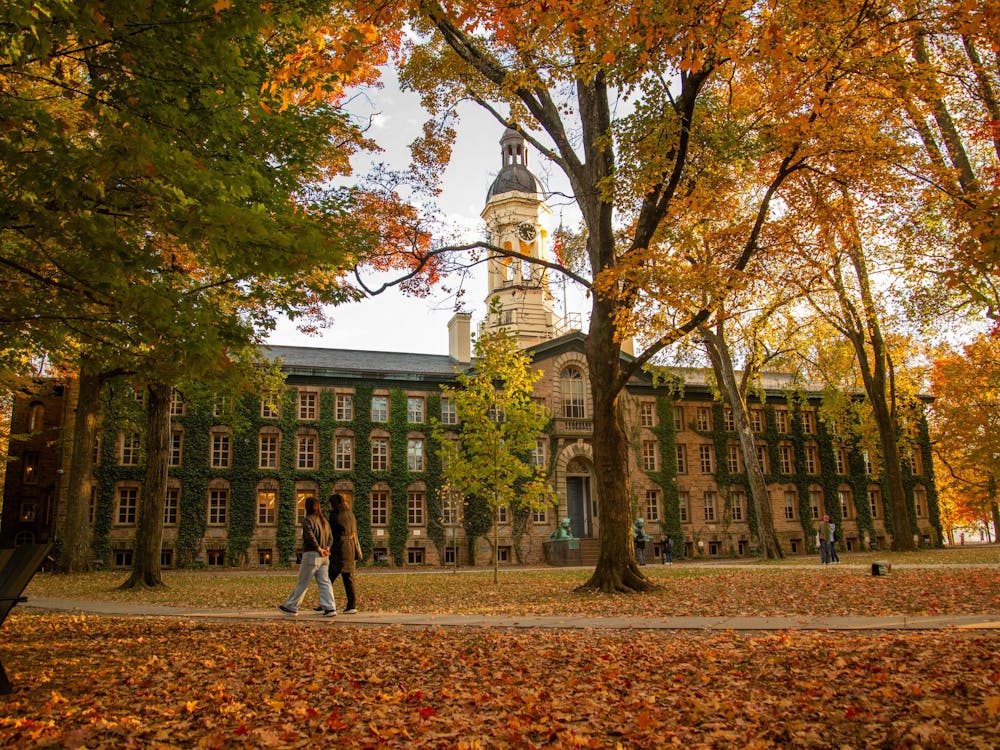Editorial reflects anti-athlete bias
Regarding 'A Unique Opportunity' (Friday, Feb. 16, 2007):
I was struck by the profound arrogance of The Daily Princetonian's editorial board's opinion that "We believe it is important for Princeton to honor the original goal of increasing the student body by admitting more of the top students...rather than applicants with less stellar academic qualifications but who participated in several varsity sports in high school." If your goal is, in fact, to strive for "diversity" across the board at Princeton, I would assume that this diversity would extend beyond race and financial background and would include diversity of experience, interest and thought. Varsity athletes at Princeton have and continue to excel both academically as well as in leadership roles. Why does the 'Prince' editorial board feel the need to tear down a significant portion of the Princeton student body? Not everyone learned lessons about hard work, leadership, being a team player, dedication and discipline in the chemistry lab — some people learned them on the athletic fields or wrestling mats. The editorial was typical of the anti-athletic bias that has permeated elite academic institutions throughout America. I guess I just hoped that Princeton was different. Tim Prugar '06 Interclub Council graduate adviser
Studies show that student athletes excel
Regarding 'A Unique Opportunity' (Friday, Feb.16, 2007):
It is clear that the authors of this editorial have neither conducted proper research before forming their opinions nor interacted with athletes on this campus at all. First and foremost, the article fails to justify why "Academic Ones" are more appealing students for Princeton's campus rather than those who participate in athletics. Based on every metric used to determine success after college, studies have shown that athletes on campus excel to a far greater extent than any other group to which they are compared. As the role of the University is to educate students for life after college, it would therefore seem that such students are more appealing than the "Academic Ones," who only thrive in Academia. Like all forms of discrimination, the discriminatory epithets spewed toward a significant portion of Princeton's community by this editorial board and tacitly endorsed by the highest levels of this school's administration are motivated by ignorance as to the benefits of athletics. To single out a distinct portion of the University's student body as undeserving, whether it be by race, gender, sexual preference or background is intolerable and should not be condoned by The Daily Princetonian or any other members of the University community. Freddy Flaxman '07 USG Rep to the Faculty Advisory Committee on Athletics
'Normal' summer jobs can be beneficial
Regarding 'There are no lazy days of summer' (Friday, Feb. 16, 2007):
I have to respectfully disagree with David Smart's assertion that serving as a cashier "is no way for college-educated individuals to spend their summer." I think it's important for Princeton students to understand what it means to work at a "normal" job where no one cares what school you went to or what your GPA is — only what services you can provide for an irate customer. It might be a good idea for more of us to work at a job where someone with "only" a high school diploma can outperform, outsell or out-stock us, to teach us both humility and an appreciation for the opportunities that our education does bring us.
In "Nickeled and Dimed," for instance, Barbara Ehrenreich discusses how mentally and physically exhausting her job at Wal-Mart was and how much it taught her about the daily inequities facing lower-class American workers. If our usefulness at our future jobs depends on our prior experience, how is it that Mr. Smart expects us to be in the service of our nation if we have no idea "how the other half lives"? Catherine Chou '06







